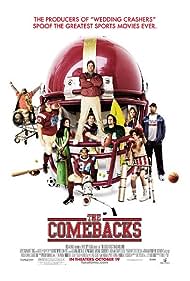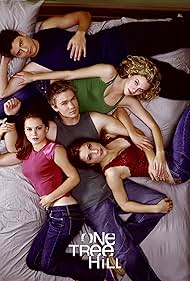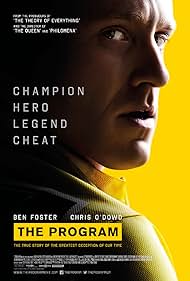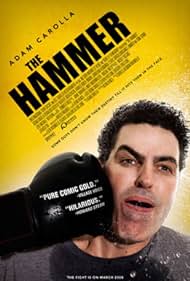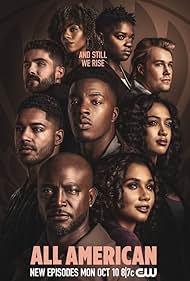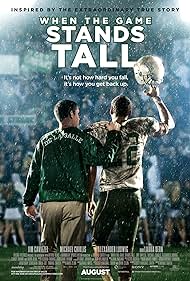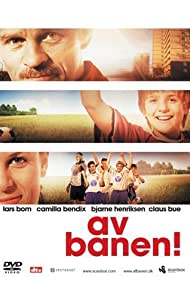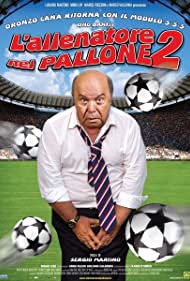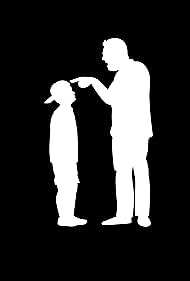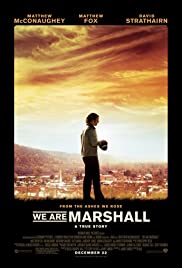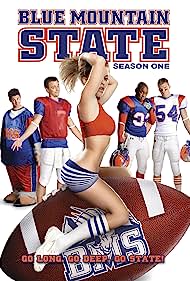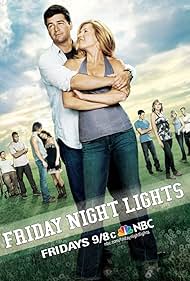McFarland Soundtrack (2015)

Buy on Amazon Play and download Soundtracks
McFarland
McFarland
McFarland, USA
McFarland, USA
McFarland
City of McFarland
Synopsis
1987. Jim White, a high school teacher and football coach, has been fired from one job after another, as the desired end of getting people to do the right thing in his mind has not always justified his sometimes impetuous and spontaneous actions as the means. He, his wife Cheryl White, and their daughters, mid-teen Julie White and preteen Jamie White, have only lived in largely white homogeneous environments, so when Jim accepts the only job he can get as life sciences and phys ed teacher and assistant football coach at McFarland High School in Central California, they are somewhat ill-prepared mentally for the relatively poor conditions and the largely homogeneous Hispanic population in the town, most of their neighbors Mexican immigrants who work as pickers in the surrounding agricultural fields.
Within this situation, many of those in the next generation have little chance of getting out of this life, many turning to crime as a means to survive. Regardless, the Whites decide to live in McFarland instead of Jim making the commute from nearby Bakersfield, where most of the school's Caucasian teachers live. While the school's football team is as bad as most that he has coached, the one thing he does notice is that out of necessity many of the boys have the stamina to run long distances quickly.
Beyond not respecting Mr. White who they mockingly call Blanco or Homey, the boys see running cross country, a team which Jim wants to establish at McFarland despite he having no history coaching runners, as an activity of the country club set. Jim does whatever he can to get the key boys in any way he can to be the core of the needed seven member team. For them to gel as coach and team members, they will have to understand the other better and fully embrace the opportunities.
As the boys manage to reach one goal after another on the march to the state championships, their newfound support as a collective may be threatened by the realities of McFarland and Jim catching the attention of other, more prestigious schools in predominantly white, upper middle class communities.
Download and play the Soundtrack list
| Play | Title | Artist |
|---|---|---|
|
McFarland
|
||
|
America
|
Los Tigres del Norte:
Performer
|
|
|
War Is Coming! War Is Coming!
|
||
|
Make It Rain
|
||
|
Impala Creeper
|
||
|
In My '64
|
Latin Soul Syndicate:
Performer
|
|
|
Stand Up
|
||
|
Vato Loco
|
||
|
Give It Up
|
Kubla Kahn:
Performer
|
|
|
Watermelon Man
|
||
|
Flash Light
|
||
|
Me and Baby Brother
|
||
|
Ahora Te Puedes Marchar
|
Mike Hawker:
Writer
|
|
|
Whittier Blvd.
|
The Midniters:
Performer
|
|
|
Las Mañanitas
|
||
|
El Gavilan
|
||
|
El Vals De Las Mariposas
|
||
|
Suavecito
|
||
|
The Star Spangled Banner
|
||
|
In My '64
|
Chuck Prophet:
Performer
|
|
|
Mala
|
Scott Gerow:
Performer
|
|
|
Juntos (Together) (Juanes)
|
Antonio Pinto:
Performer
|
|
|
The Real McFarlands
|
Antonio Pinto:
Performer
|
|
|
Me and Baby Brother (War)
|
Antonio Pinto:
Performer
|
|
|
Let's Hit It Again
|
Antonio Pinto:
Performer
|
|
|
Lord's Prayer
|
Antonio Pinto:
Performer
|
|
|
Watermelon Man (Mongo Santamaria)
|
Antonio Pinto:
Performer
|
|
|
Barbie Bike
|
Antonio Pinto:
Performer
|
|
|
Flashlight (Parliament)
|
Antonio Pinto:
Performer
|
|
|
Convoy to State
|
Antonio Pinto:
Performer
|
|
|
Whittier Blvd. (Thee Midniters)
|
Antonio Pinto:
Performer
|
|
|
Beach
|
Antonio Pinto:
Performer
|
|
|
This Ain't Golf
|
Antonio Pinto:
Performer
|
|
|
That's Not Danny Diaz
|
Antonio Pinto:
Performer
|
|
|
McFarland Theme
|
Antonio Pinto:
Performer
|
|
|
América (Los Tigres Del Norte)
|
Antonio Pinto:
Performer
|
|

